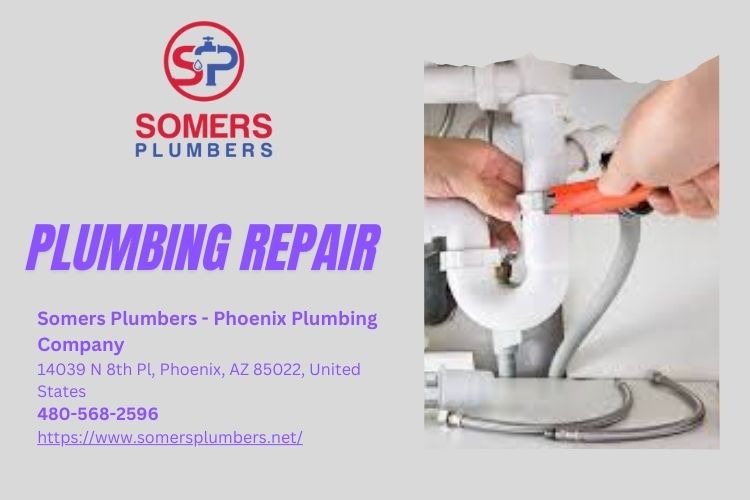In today’s environmentally conscious world, the plumbing industry is witnessing a significant shift towards sustainability. More homeowners are becoming aware of how their plumbing choices can impact the environment. Enter Somers Plumbers - Phoenix Plumbing Company, your go-to local plumbers who are leading the charge in promoting green plumbing solutions. This article explores various sustainable practices encouraged by Somers Plumbers, demonstrating how you can make eco-friendly decisions that benefit both your home and the planet.
Understanding Sustainable Plumbing
What is Sustainable Plumbing?
Sustainable plumbing refers to practices that minimize negative environmental impacts while providing efficient water usage and superior service. It involves selecting materials, fixtures, and techniques that conserve water, reduce energy consumption, and promote overall health for both individuals and ecosystems.
Why Choose Sustainable Plumbing?
Choosing sustainable plumbing isn't just about being eco-friendly; it's also about saving money in the long run. Efficient systems reduce water waste and lower utility bills. By using sustainable materials, you contribute to a healthier environment, which benefits everyone.
Go Green with Your Plumbing: Sustainable Practices Encouraged by Somers Plumbers
1. Low-Flow Fixtures Installation
One of the easiest ways to go green is by installing low-flow faucets and showerheads. These fixtures use significantly less water without sacrificing performance.
Benefits of Low-Flow Fixtures
- Water Conservation: Saves gallons per minute. Cost Savings: Reduces your water bill. Quality Options: Available in various styles to match your home decor.
2. Dual Flush Toilets
Dual flush toilets offer two flushing options—one for liquid waste and another for solid waste—allowing users to conserve more water.
Why Switch to Dual Flush Toilets?
- Water Efficiency: Uses as little as 1.6 gallons per flush. Reduced Water Waste: Particularly effective for households with kids or multiple occupants.
3. Rainwater Harvesting Systems
Installing a rainwater harvesting system collects rainwater for irrigation purposes or non-potable uses like toilet flushing.
Advantages of Rainwater Harvesting
- Reduces Dependency on Municipal Water Supply: Helps alleviate strain on local resources. Cost-effective Irrigation Solution: Great for gardens during dry seasons.
Energy-Efficient Hot Water Systems
4. Tankless Water Heaters
Tankless water heaters heat water on demand, eliminating standby energy loss associated with traditional tank heaters.
Key Benefits of Tankless Water Heaters
- Energy Savings: Reduce energy consumption by up to 30%. Longevity: Lasts longer than conventional heaters due to less wear and tear.
5. Solar Water Heating Systems
Solar heating systems use renewable energy from the sun to heat your water supply, significantly lowering energy bills.
Impact of Solar Water Heating
- Sustainability: Utilizes renewable energy sources. Reduced Carbon Footprint: Less reliance on fossil fuels translates into fewer greenhouse gas emissions.
Regular Maintenance for Sustainability
6. Routine Plumbing Inspections
Regular inspections help identify leaks or inefficiencies before they escalate into larger issues.
Why are Regular Inspections Important?
- They prevent excessive water waste caused by unnoticed leaks. They help maintain efficiency in your plumbing systems.
7. Fixing Leaks Promptly
A small drip may seem insignificant but can add up over time, wasting gallons of water each day.
Benefits of Prompt Leak Repairs
- Saves money on utility bills. Conserves valuable resources.
Can Compostable Toilets be Part of Your Plumbing?
8. Composting Toilets
These toilets break down human waste through composting processes instead of flushing it away with gallons of clean water.
Advantages of Composting Toilets
- Highly efficient in terms of water use. Converts waste into usable compost for gardening purposes!
Environmental Impact Awareness
9. Choosing Eco-Friendly Materials
When renovating your plumbing system, opt for eco-friendly materials such as recycled pipes or sustainably sourced wood for cabinetry.
Why Choose Eco-Friendly Materials?
- Reduces environmental impact during production. Promotes sustainability at every stage of construction or remodeling.
Local Resources for Sustainable Practices
10. Connecting with Local Organizations
Engaging with local organizations focusing on sustainability can provide insights into other green practices that you might not be aware of yet.
Resources Available
Community Workshops Online Forums Cooperative ProgramsEducational Campaigns by Somers Plumbers
11. Promoting Eco-Friendly Awareness
Somers Plumbers is actively involved in educating clients about sustainable practices via blogs, workshops, and community events that focus on green plumbing solutions.
Importance of Education
Education empowers homeowners to make informed decisions regarding their plumbing systems that positively impact the environment.
Frequently Asked Questions (FAQs)
12. What are some quick tips for going green with my plumbing?
Some quick tips include installing low-flow fixtures, fixing leaks promptly, and considering dual flush toilets to save on water usage!
13. How can I find reliable plumbers near me who specialize in sustainable practices?
You can search online directories or ask friends and family for recommendations regarding local plumbers who emphasize eco-friendly solutions like local water heater repair Somers Plumbers in Phoenix AZ!
14. What should I look for when selecting plumbers Phoenix AZ?
Look for certifications indicating experience in green building practices along with customer reviews highlighting their expertise in sustainable plumbing solutions!
15. Are tankless water heaters worth the investment?
Absolutely! They provide long-term savings on energy costs while offering an endless supply of hot water compared to traditional tank models!
16. Can I install rainwater harvesting systems myself?
While DIY installations are possible, it’s best to consult local plumbers like Somers Plumbers - Phoenix Plumbing Company who have experience ensuring compliant installation!
17. How often should I schedule routine inspections?
Typically once a year is recommended; however, if you notice any signs of trouble like leaks or low pressure earlier than that might warrant an inspection sooner!
Conclusion
Adopting sustainable plumbing practices isn’t just beneficial—it’s essential! You contribute positively towards conserving our precious natural resources while enjoying financial savings through reduced utility bills when you choose wisely! From installing low-flow fixtures to opting for solar-powered heating solutions offered by experts like Somers Plumbers - Phoenix Plumbing Company—all these steps lead toward creating a greener future! So why wait? Take action today!
For further assistance or inquiries related to sustainable plumbing solutions:
Contact Us
Somers Plumbers - Phoenix Plumbing Company
Address: 14039 N 8th Pl, Phoenix, AZ 85022, United States
Phone: (480) 568-2596
